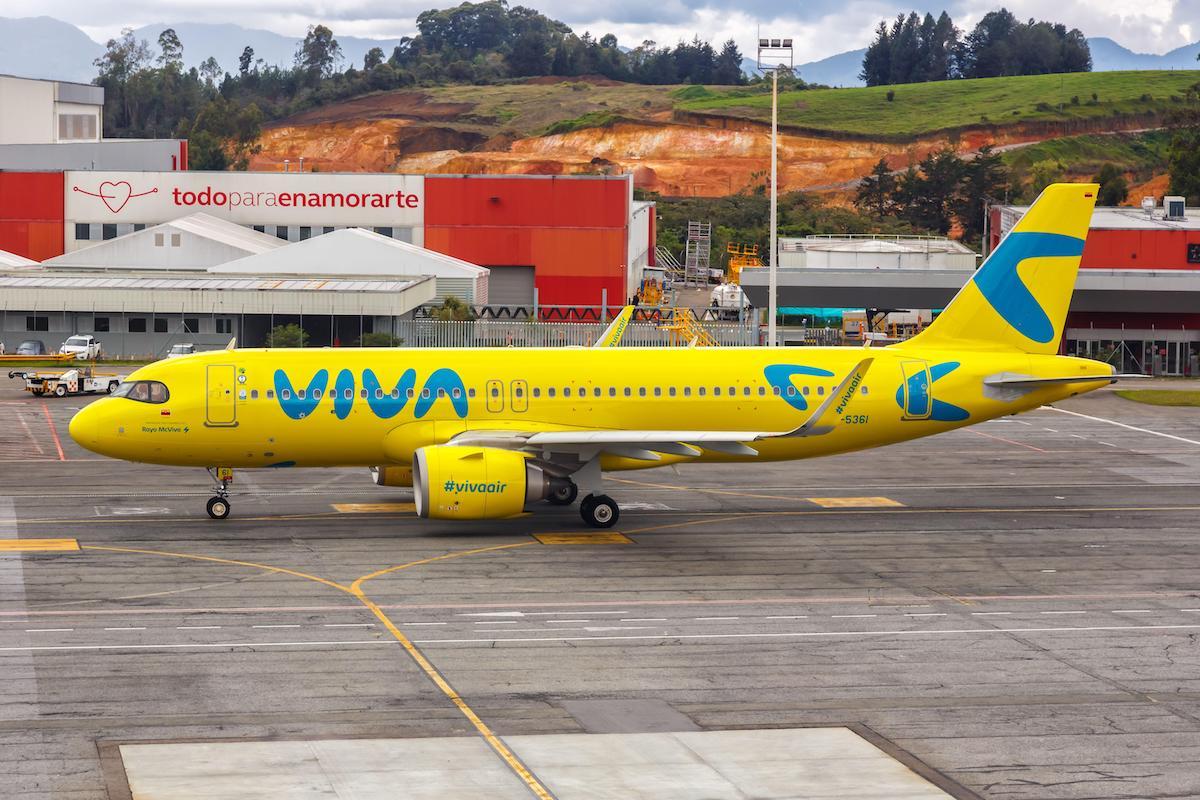
The planned merger between Colombian carriers Avianca and Viva Air has been rejected by the country’s civil aviation authority Aerocivil, which said Nov. 8 that the tie-up would damage competition and create a monopoly on 16 domestic routes.
Aerocivil said it found that the integration of the two carriers—alongside Viva’s Peruvian subsidiary—represents “risks for competition in the sector and the welfare of consumers.” Other airlines would face “new difficulties” in growing or entering markets because of the combined entity’s dominance, the regulator said.
Aerocivil found that Avianca and Viva collectively offer 59 domestic routes, which mobilize 93.7% of Colombia’s traffic. The merged business would have a monopoly on 16 of these routes.
“Consumers could be harmed to the extent that the integrated entity (Avianca, Viva Air and Viva Peru) would have more facilities, incentives and fewer risks by increasing its prices, reducing frequencies, canceling routes or reducing complementary services,” Aerocivil concluded.
Avianca announced plans to acquire ULCC Viva in April, but to keep the two carriers separate. However, in August the airlines then requested expedited antitrust approval from Aerocivil for a merger, saying the integration was vital due to Viva’s “delicate financial situation.”
In its objection to the planned deal, Aerocivil ruled that Avianca and Viva “did not prove that Viva’s economic crisis is of such a magnitude” that it affects its viability to continue operations. Aerocivil added that Viva had not shown that it had “explored and exhausted other alternatives,” such as applying for loans or seeking out other potential investors.
In addition, Aerocivil said that both companies failed to demonstrate that the harm to competition generated by the transaction was less than that which would cause Viva’s exit from the market. “On the contrary, Avianca and Viva limited themselves to recounting the effects of Viva’s supposed exit from the market but did not compare them with the effects that the approval of the transaction would generate,” the authority added.
Following the ruling, Avianca president and CEO Adrian Neuhauser said the airline was “concerned about the direction of the decision, as it goes against the needs of the country and ignores the potential effect that the disappearance of Viva would have on users and the market.”
He added: “At Avianca, we reiterate our willingness to actively participate in rescuing Viva, seeking to maintain connectivity for travelers, strengthen tourism and preserve formal employment.”
The Star Alliance member said it would “evaluate all available legal alternatives to seek the necessary approvals.”
Avianca stressed that the merger with Viva was independent of its plans to create a new holding company named Abra Group. In May, Avianca announced a deal with Brazilian carrier GOL Linhas Aereas to form Abra, which would become one of the largest airline groups in Latin America and include Viva as well as having a minority stake in Chile’s Sky Airline.
Aerocivil said it would reconsider the Avianca-Viva merger if a new request were to be submitted but emphasized that the parties must offer remedies to solve the competition concerns outlined.





